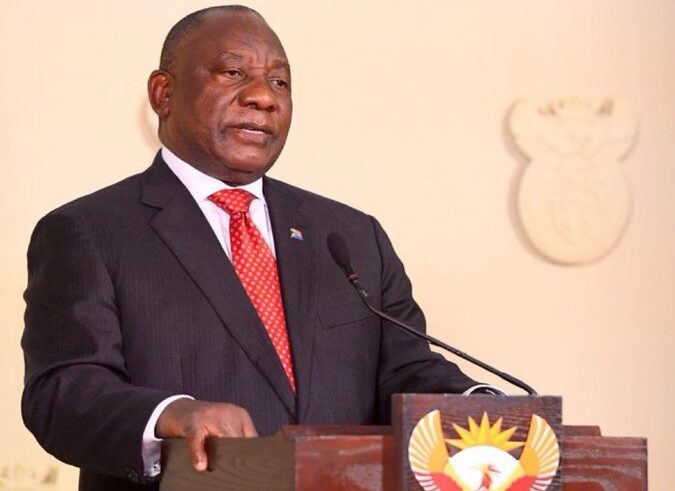South Africa’s political landscape has been rocked by a sharp escalation in tensions within its fragile coalition government, after President Cyril Ramaphosa delivered a pointed rebuke to the Democratic Alliance (DA), the second-largest party in the ruling alliance. The dispute centers on Ramaphosa’s abrupt dismissal of Andrew Whitfield, the DA’s Deputy Minister for Trade, Industry and Competition, and the DA’s subsequent ultimatum demanding the removal of other officials accused of misconduct. The fallout has raised questions about the stability of the coalition and the future of South Africa’s Government of National Unity (GNU).
The Dismissal That Sparked a Crisis
On Wednesday, President Ramaphosa dismissed Andrew Whitfield from his cabinet post. The move came after Whitfield, a senior DA figure, undertook an unauthorized overseas trip to the United States in February, at a time when relations between Washington and Pretoria were already strained. According to Ramaphosa, Whitfield’s journey breached established protocols, which require explicit presidential approval for all international travel by ministers and their deputies. “Mr. Whitfield was dismissed because he undertook an international journey without the president’s approval,” Ramaphosa stated, emphasizing that such actions are a clear violation of the rules governing executive conduct.
Whitfield himself has said he was given no reason or explanation for his removal, a claim that has only fueled the DA’s anger. The president’s spokesperson, Vincent Magwenya, confirmed the dismissal but insisted there were no plans for a broader cabinet reshuffle, a tool often used in South African politics to quietly remove controversial figures.
The DA’s Ultimatum and Accusations of Double Standards
The DA responded to Whitfield’s firing with a stern ultimatum: unless Ramaphosa takes action against other ministers and deputies accused of misconduct by Saturday, the party warned of “serious repercussions”. DA leader John Steenhuisen characterized the move as a “deliberate attack” on the party and accused Ramaphosa of “blatant double standards,” pointing out that ANC officials facing allegations have not faced similar consequences.
The DA’s federal executive convened an emergency meeting to discuss its response, with party spokesperson Willie Aucamp describing the situation as “a very serious development”. Despite the heated rhetoric, the DA has not yet indicated whether it will withdraw from the coalition, a move that could plunge the GNU into crisis.
Ramaphosa’s Stinging Rebuff
In a detailed statement on Friday, Ramaphosa made it clear he would not be cowed by threats or ultimatums from his coalition partner. “I will not succumb to threats and ultimatums,” he declared, directly addressing the DA’s demands. Ramaphosa insisted that his decision was consistent with the constitution and the protocols governing cabinet conduct, and said he was compelled to speak out due to “numerous unfortunate comments and blatant distortions from several individuals”.
He also clarified that the DA remains entitled to nominate a replacement for the deputy minister post, as per the coalition agreement. This gesture, while upholding the letter of the coalition deal, does little to mask the deepening mistrust between the two parties.
Underlying Tensions Threaten Coalition Stability
The ANC and DA formed the GNU last year after the ANC lost its parliamentary majority for the first time since the end of apartheid. The coalition has been marked by persistent disputes over budget priorities and the government’s approach to addressing South Africa’s enduring racial and economic disparities. The Whitfield episode has exposed the fragility of the arrangement and the difficulty of managing a partnership between parties with divergent ideologies and constituencies.
As the DA weighs its next move, the future of the coalition hangs in the balance. The episode is a stark reminder of the challenges facing South Africa’s experiment with coalition governance: personal rivalries, accusations of double standards, and the ever-present risk of political brinkmanship. Whether the GNU can survive this latest crisis remains to be seen, but for now, President Ramaphosa has made it clear he will not be dictated to by threats from his partners.

